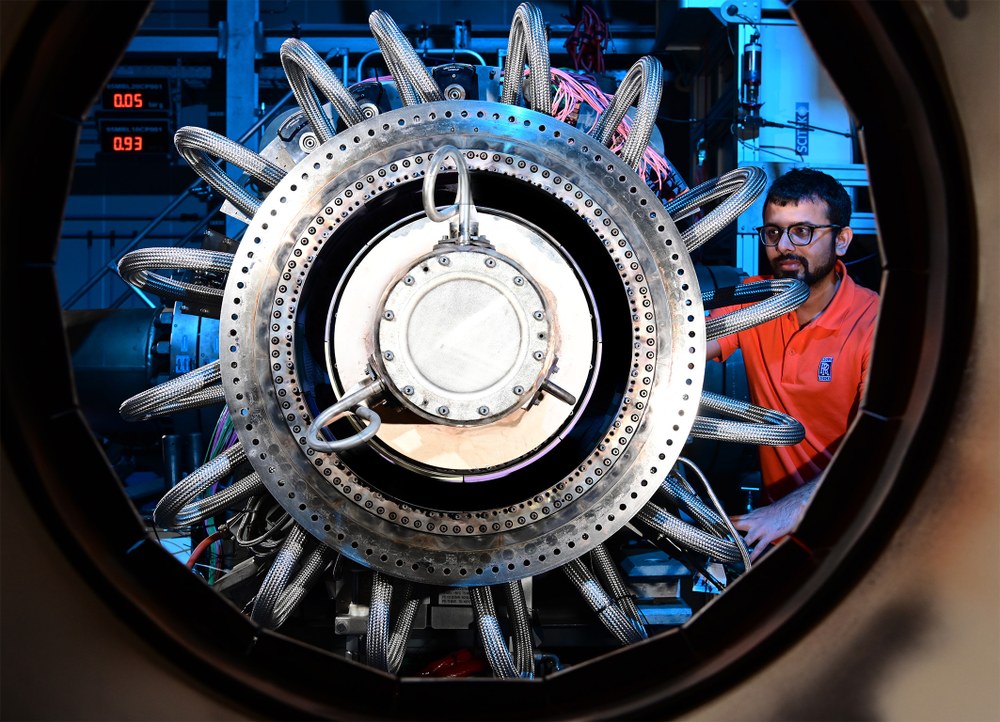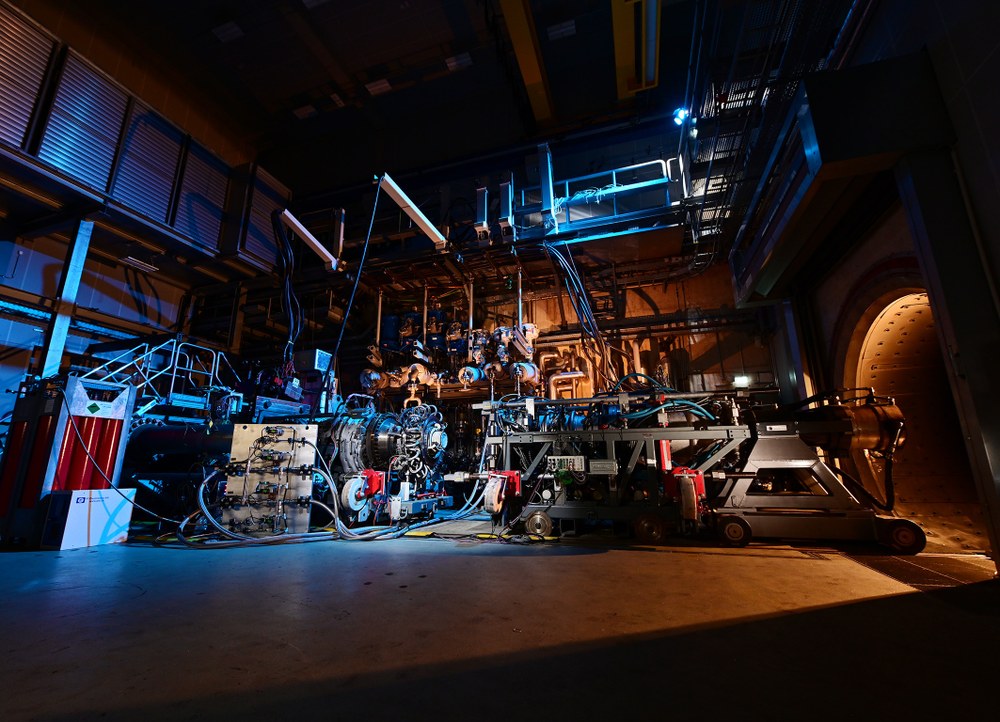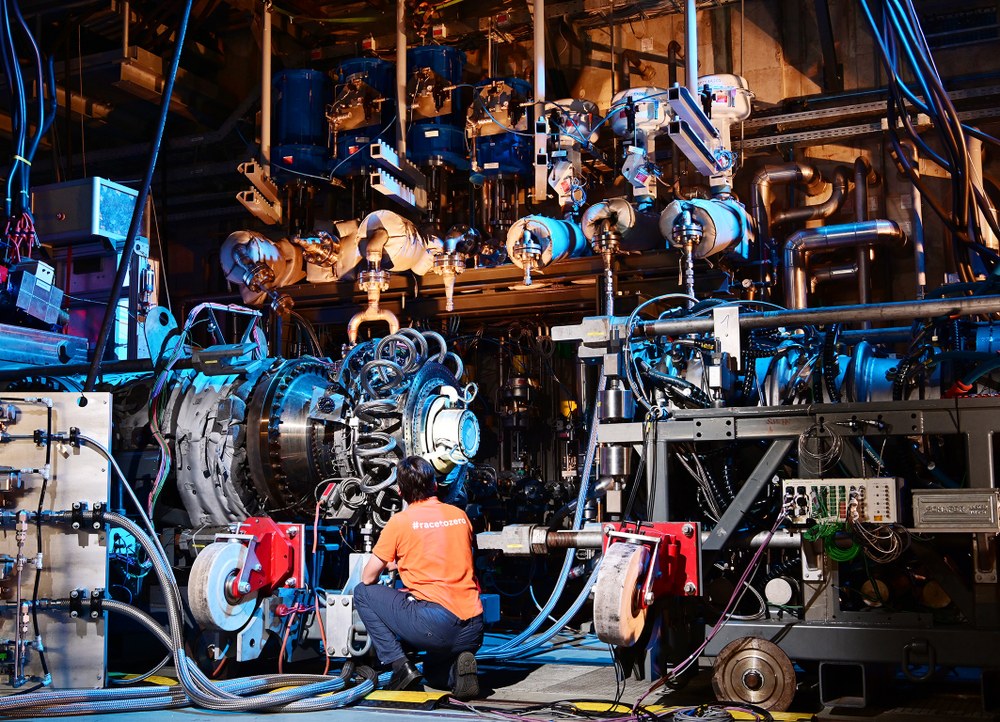Milestone for hydrogen combustion in aircraft turbines

Rolls-Royce / Steffen Weigelt

Rolls-Royce / Steffen Weigelt

Rolls-Royce / Steffen Weigelt
- DLR and Rolls-Royce are conducting joint research into hydrogen combustion.
- Successful tests pave the way for the use of 100 percent hydrogen in aircraft turbines.
- Focus: Aeronautics, emission-free flight
The combustion of hydrogen in aircraft engines is a crucial core technology for climate-friendly air transport. In a joint project led by Rolls-Royce and its partner easyJet, 100 percent hydrogen was successfully tested for the first time under aircraft take-off conditions at the German Aerospace Center (Deutsches Zentrum für Luft- und Raumfahrt; DLR) in Cologne.
The aviation industry is seeking to ensure short- and medium-haul aircraft can be operated using hydrogen as fuel in the 2030s. To achieve this goal, engine technology must be adapted to the requirements of this fuel. For example, hydrogen burns far hotter and more rapidly than kerosene. The injection nozzles in the combustion chamber play an important role here.
During the recent tests conducted on the High Pressure Combustion Chamber Test Stand 5 (HBK 5), at the DLR Institute of Propulsion Technology in Cologne, newly developed nozzles were used in the combustion chamber of a Rolls-Royce Pearl engine. The nozzles made it possible to precisely regulate the hydrogen-air mixture and thus optimally control the combustion process. This test campaign was preceded by tests of a three-sector combustion chamber on the High Pressure Combustion Chamber Test Stand 1 (HBK1) and at Loughborough University in the United Kingdom. In particular, the optically accessible test combustion chambers, such as HBK1, played a supporting role in the earlier stages and provided important insights and validation in the preparation for the tests on a full annular combustor.
The tests confirmed both the functionality of the combustion chamber and the expected emissions. In the coming months, further test campaigns will follow on complete engines, the fuel delivery systems and the integration of these systems into an engine.
"This is an outstanding success story, and we are pleased that we were able to make a significant contribution with our hydrogen testing capabilities. It was exciting to support this technology development and see how it was further advanced in the various facilities at our Institute of Propulsion Technology. This once again demonstrates DLR's capabilities in complex applied research. Achieving this rapid pace was supported by our experience in testing ground-based gas turbines," said Markus Fischer, DLR Divisional Board Member for Aeronautics.
Grazia Vittadini, Chief Technology and Strategy Officer, Rolls-Royce, said: "This is an incredible achievement in a short space of time. Controlling the combustion process is one of the key technology challenges the industry faces in making hydrogen a real aviation fuel of the future. We have achieved that, and it makes us eager to keep moving forward. I want to thank easyJet, Loughborough University and DLR for their dedication and support in reaching this milestone."
Funding
The research is being funded by the German LuFo (Aeronautics Research) VI programme and the European Union Clean Aviation CAVENDISH programme. The WotAn project (Hydrogen Combustion Technology for New Generation Propulsion Systems) is made possible by the German Federal Ministry for Economic Affairs and Climate Action (Bundesministerium für Wirtschaft und Klimaschutz; BMWK) with funding from its Aviation Research Programme.
